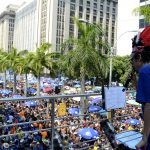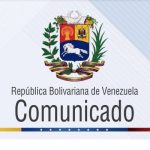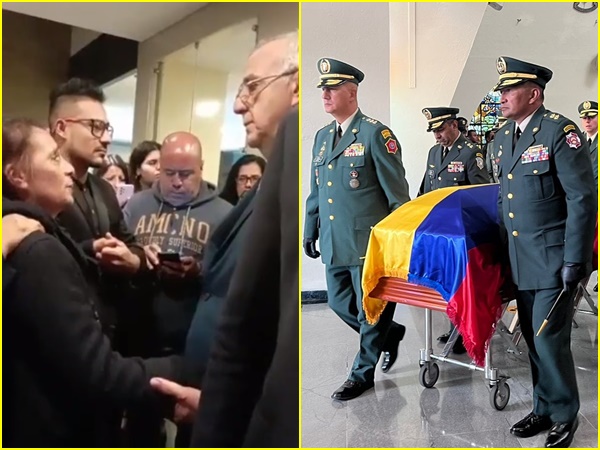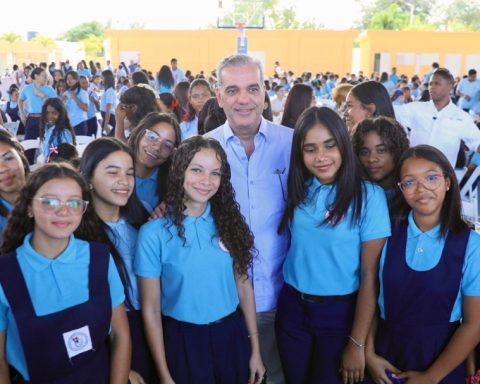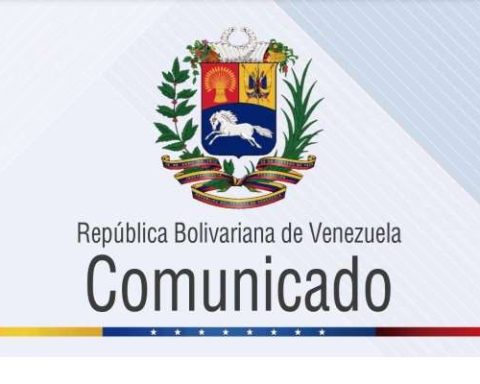MIAMI, United States. – The president of Colombia, Gustavo Petro, sparked controversy this Sunday by highlighting the “strong preventive health systems” of Cuba, Costa Rica and Uruguay in a twitter thread where he defends the need for a reform of the health system in his country.
The controversy stems from the inclusion of Cuba on that list. Although Petro cites the magazine The lancetwhich ranked Cuba’s health system in 55th place and Colombia’s in 81st place, the island is experiencing an unprecedented crisis in the area of health, given the terrible state of sanitary facilities and the lack of basic medicines and inputs.
The Lancet measured the “index of access and quality of health care in 195 countries, territories and selected subnational locations” with data from 1990 to 2016, almost four years before the coronavirus pandemic that exacerbated the crisis of the Cuban health system.
“Gustavo Petro, you are comparing the administration of a farm with a country, ask how a health worker lives in Cuba”, responded on Twitter the user carlos saenz. “Cuba develops vaccines and does not even have pills for a headache,” added manuel garcia
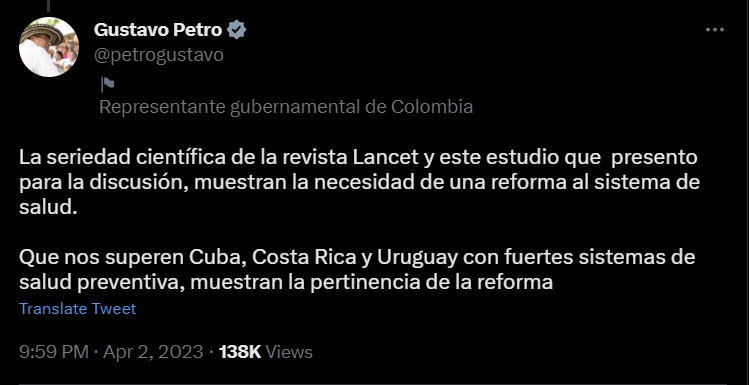
In April 2020, Petro traveled to Havana to receive medical attention after announcing that he had esophageal cancer. Later, doctors from your country they criticized the tests carried out on the Island and denied that Petro was ill.
Petro’s tweet this Sunday is not the first praise of Cuba’s health system linked to his government. In mid-March, the Colombian vice president, Francia Márquez, also sparked controversy after praising Health in the largest of the Antilles.
In an interview with the magazine Weekthe policy said: “They can say what they want, but they can’t cover the Sun with a finger. While other countries send troops and weapons to many nations, Cuba sends doctors and they cannot hide that. A country blocked for more than 60 years sends doctors to other nations, ”she repeated.
Later, he added: “I admire the health system [cubano], which supported the professionalization, blockade and all, of thousands of citizens, including Colombians. Because more than 1,000 have been trained there and here they have not had the opportunity, in our nation and in our country. Yes, they have had it in another nation blocked (…) ”.






